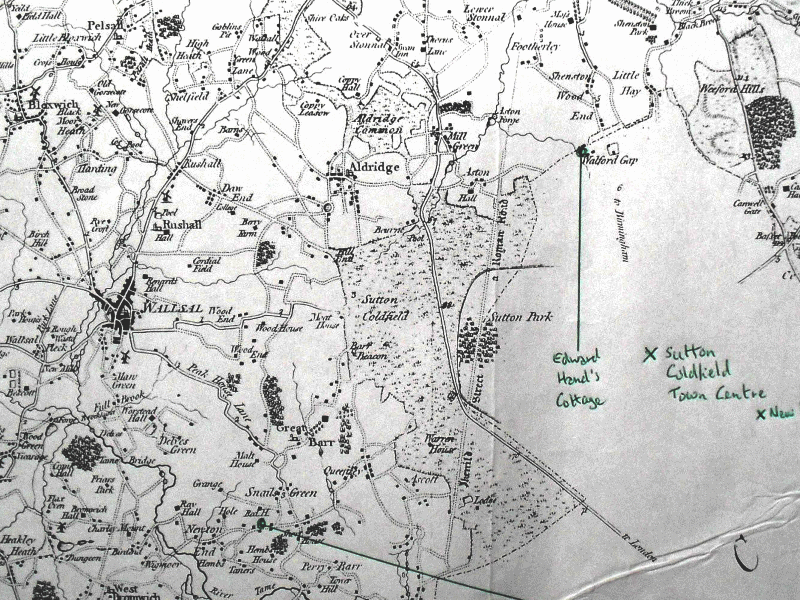The name Sutton Coldfield seems to have a simple explanation – south town in a field where charcoal was made. But each element of the name – sut, ton (originally “tun”), cold and field – is a bit of a puzzle.
The name is of Anglo-Saxon origin, and “sut” clearly means south, but south of where? Lichfield and Shenstone have both been suggested as Sutton is due south of them, but a more likely candidate is Tamworth. Although Tamworth is not due north of Sutton, it was the seat of the kings of Mercia, and early settlers are more likely to have oriented themselves towards such an important town. Half-way between Sutton and Tamworth is Middleton!
“Tun”, the Saxon word from which “town” is derived, is also ambiguous. It indicates a settlement of less importance than a “burh” or borough, which occupied a fortified site. But the original Sutton settlement was established in a time when the countryside was not a very safe place, so a defensible site (such as that occupied by Sutton Parish Church), with a stockade, would have been desirable even for a humble “tun”.
We think of a field as a piece of ground with a hedge round it, but it used to signify a wide open space like a prairie or the African Veldt. The Coldfield is shown on eighteenth century maps extending from Sutton to Great Barr and from Aldridge to Perry Barr, and was described as a barren expanse of furze and heath. If it had this appearance in the eighth century, there would not have been much suitable wood for charcoal, so there may be another explanation of the “Cold” part of our name.
One suggestion is that “col” may have meant hilltop; however, there is no comparable use of the word in place-names, and the usual meaning is a pass between peaks. Although the Coldfield included Barr Beacon, it extended over valleys as well as hills. This leaves us with “cold”, and maybe a cold wind does sometimes whistle across from the Beacon, but the word once had another meaning. “As for the soil - it is so cold and ungrateful that it can hardly be made to yield a cabbage” wrote Jane Austen in Sanditon, and it is this sense, unproductive or infertile, which is most appropriate for Sutton Coldfield. So, thirteen hundred years ago, lying in or near a vast expanse of barren heath, there was a satellite settlement of Tamworth to the south of that town.
